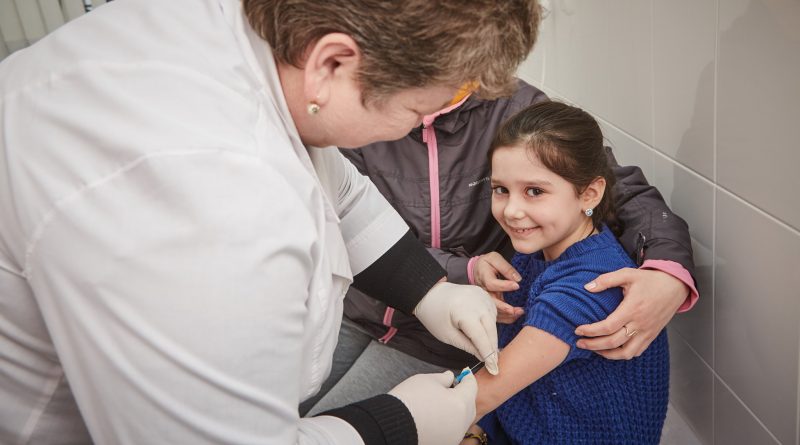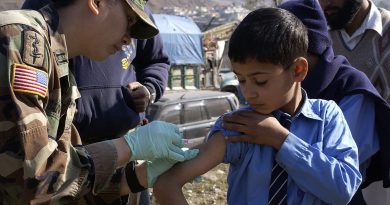Focus on the “Anti-Vax” Movement: Ukraine
Natalie Sherman
Staff Writer
Ukraine is one of the most notable cases in the world-wide phenomenon of vaccine-hesitancy. Radio Free Europe says that with more than 53,200 confirmed cases of measles and 15 attributed deaths, Ukraine had the highest number of measles cases in the world in 2018.
Since 2017, at least 30 Ukrainians have died from measles. According to The Economist, vaccine rates in some parts of Europe are now lower than some African countries, meaning that disease outbreak could become the new normal.
Measles is a highly contagious disease that can linger in the air for hours after a sick individual coughs or sneezes. It is thought to be more contagious than Ebola, tuberculosis, or influenza. According the Center for Disease Control, the disease is extremely dangerous for infants who are too young to receive the vaccine and those who are unable to receive the vaccine due to legitimate health concerns, including the elderly.
Once and individual has contracted measles, there is very little that can be done to help treat it. The disease is entirely preventable, so many of those who contracted measles in Ukraine were perfectly capable of receiving the MMR vaccine to prevent the disease.
These low vaccination rates, particularly against measles, are a result of the worldwide vaccine-hesitancy movement. According a report by the World Health Organization (WHO), vaccine-hesitancy can be caused by a variety of factors, including poor health infrastructure, civil strife, low community awareness, and complacency.
The WHO report condemns the movement, stating that “vaccine hesitancy — the reluctance or refusal to vaccinate despite the availability of vaccines — threatens to reverse progress made in tackling vaccine-preventable diseases.” Vaccination is one of the most cost-effective ways of avoiding disease, the WHO went on to say, as it currently prevents 2-3 million deaths a year, and a further 1.5 million could be avoided if global coverage of vaccinations improved.
Vaccines have become a politically-charged topic in recent years. Many Ukrainians in particular are against the idea of vaccinating themselves or their children. On top of this, Russian trolls also likely play a large role in the rapid decrease of vaccination rates and spread of misinformation about vaccines in Ukraine and many other countries, reports Radio Free Europe.
Vaccine-hesitancy has a large presence on social media, and many of its most aggressive detractors use websites like Facebook and Twitter to spread conspiracy theories and misinformation. In recent years, the so-called “Anti-Vax” movement has become a hot-button topic around the world.
Russian trolls have infiltrated these online communities in an attempt to exacerbate societal divisions. The trolls are disguised as legitimate social media users and often post about other controversial political topics to increase their legitimacy. They infiltrate groups affiliated with vaccine-hesitancy and start conversations to change the opinions of users in a way that benefits the Kremlin.
In online communities centered around vaccine-hesitancy, trolls often encourage complacency about vaccines and stoke fears that many people hold about them. The trolls also seek to spread the idea that vaccines cause autism in children, although this theory has long been proven false, says TIME.
Most parents want to do right by their child, and these trolls are exploiting the anxieties of parents who worry that they could inadvertently harm their child. While Ukraine is not the only country in Eastern Europe to be a target of such misinformation, it is likely one of the hardest hit because of Russia’s interest in dividing Ukrainian society.
The United Nations Children’s Fund (UNICEF) is very active within Ukraine and is attempting to provide vaccinations to children at risk. UNICEF can only do so much, however, as it cannot vaccinate someone against their will.
This year measles is not showing any signs of slowing down in Ukraine. Radio Liberty reports that 24,042 Ukrainians contracted measles in just the first two months of 2019.
In response to the measles epidemic in Ukraine, executive director of UNICEF Henrietta H. Fore stated that “measles may be the disease but, all too often, the real infection is misinformation, mistrust, and complacency. We must do more to accurately inform every parent, to help us safely vaccinate every child.”


